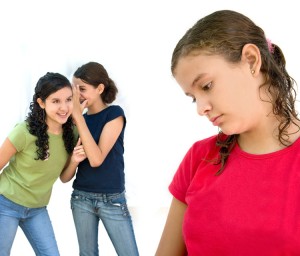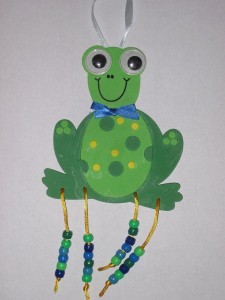 I was recently teaching a class to my Advanced 12 Month Conscious Awareness group and we were looking at the energy and information that we carry related to how others see us and interact with us.
I was recently teaching a class to my Advanced 12 Month Conscious Awareness group and we were looking at the energy and information that we carry related to how others see us and interact with us.
As we were exploring I was reminded of my older brother’s favorite chant when he was little “You’re stupid, fat and ugly” which was usually followed by a ‘thunder thighs’ comment.
For whatever reason, I was able to know in my own right that I was not stupid, but on the body image side, I bought in hook, line and sinker.
To this day, I still see larger thighs, no matter what they actually look like. What’s interesting is that I can know that they are not huge, but when I look in the mirror, they look gigantic. I just ignore the mirror image.
But what possess people, young or old, to say things like this?My brother could have just as easily been loving, supportive and encouraging. I’m not mad at him, but I still marvel at the experience and I’m certain he doesn’t even remember saying these things, but they left a lasting impression on me.
When I look at this dynamic of either emotionally or mentally diminishing someone, I see that it has to do with feeling more powerful. I’m going to use two fictitious names here, let’s say Kelly and Lisa. If Kelly can put down Lisa, or make Lisa feel inferior, then Kelly feels superior, feels validated, feels more powerful. Lisa feels small, feels scared, feels uncertain and learns to question her own value. These experiences start when we are children and we carry them with us into our adulthood.
Sadly, kids who learn that they can use words to feel more powerful often grow up to be adults who continue to use this diminishing tactic.
I think as parents, teachers, grandparents, care givers; as anyone who lives with, works with or is around children we have a responsibility to support both Kelly and Lisa. Kelly needs to learn how to validate herself without the need to diminish another. She needs to learn to love herself and learn how to make herself whole, healthy and happy from within. Lisa also needs to learn to validate herself and learn how to make herself whole, healthy and happy from within, but unlike Kelly, Lisa also needs to learn to manage her space. Someone who is susceptible to verbal and mental diminishment is usually incredibly sensitive to emotions and to energy. So Lisa also needs to learn how to energetically protect herself and needs to learn how to release rather than suppress negative feelings and experiences.
Sometimes is it helpful to talk to those on the receiving end about what might possess another to speak and act so cruelly. Sometimes, if a child can understand that this behavior is not about them, but about the other person, that it is about that person’s fears and uncertainty, the child being diminished can start to claim back some of their power.
In the end though, mental and verbal diminishment is something we should not tolerate. Just because there are no visible signs of hurt or wounding, does not mean that these forms of attack are any less real. This is a conversation we should be having with our children from a very young age. We should be reminding them that words have energy. Words can makes us feel good or they can make us feel bad. We need to talk to our kids about where their sense of self-validation comes from and the tactics they use to feel good about themselves. We cannot and should not assume that ‘our kid’ will never be mean. If it’s not in their nature, it’s amazing how easy it can be to jump on the bandwagon. Power is intoxicating at any age.
I’ve heard people say ‘Kids will be kids’ when one child is speaking cruelly to another child. In my world, that’s not acceptable. Kids will be who we help them to be. If we don’t point out that their actions and behaviors are hurtful, they will only know the power they feel when they make someone feel bad.
Step in to help and support both children.

